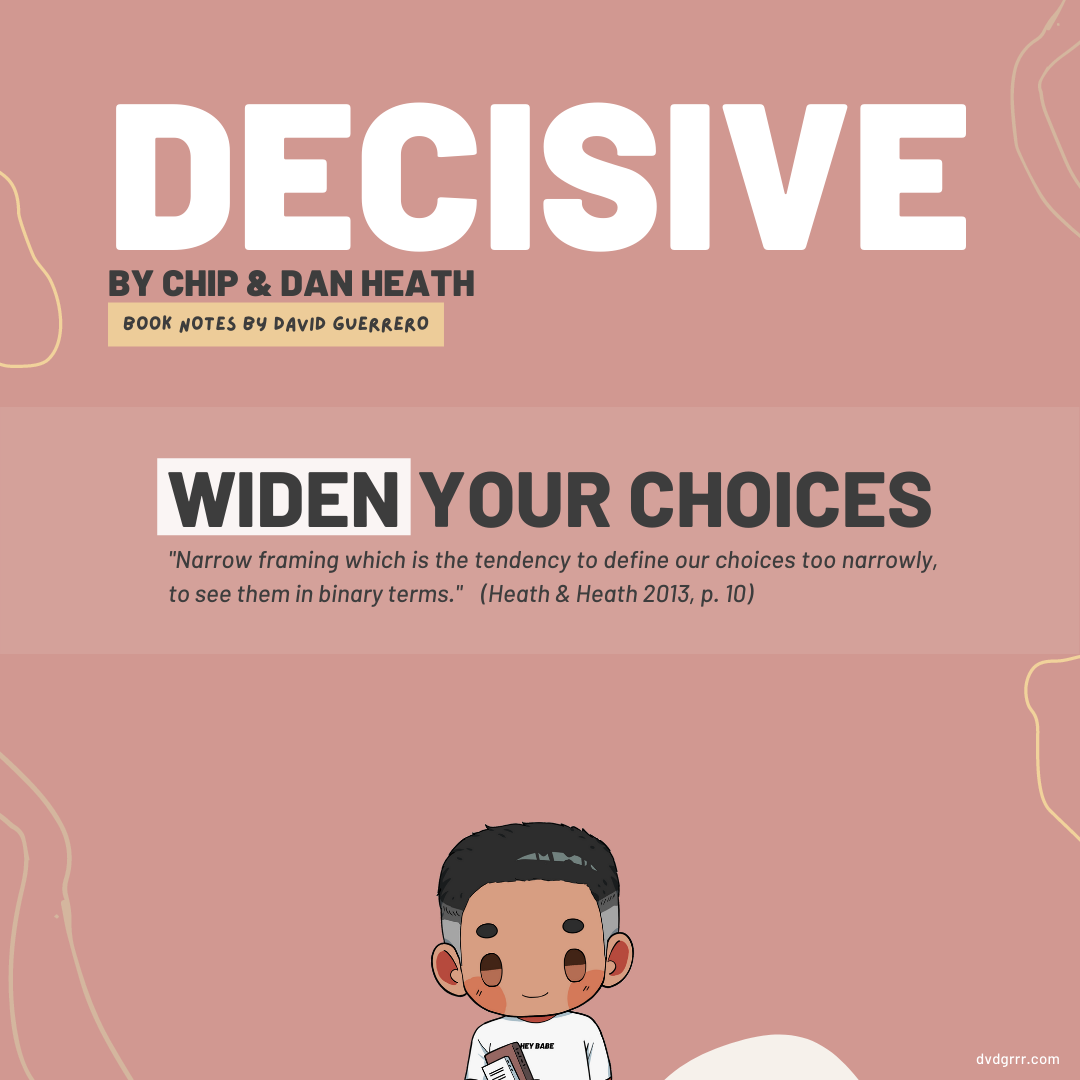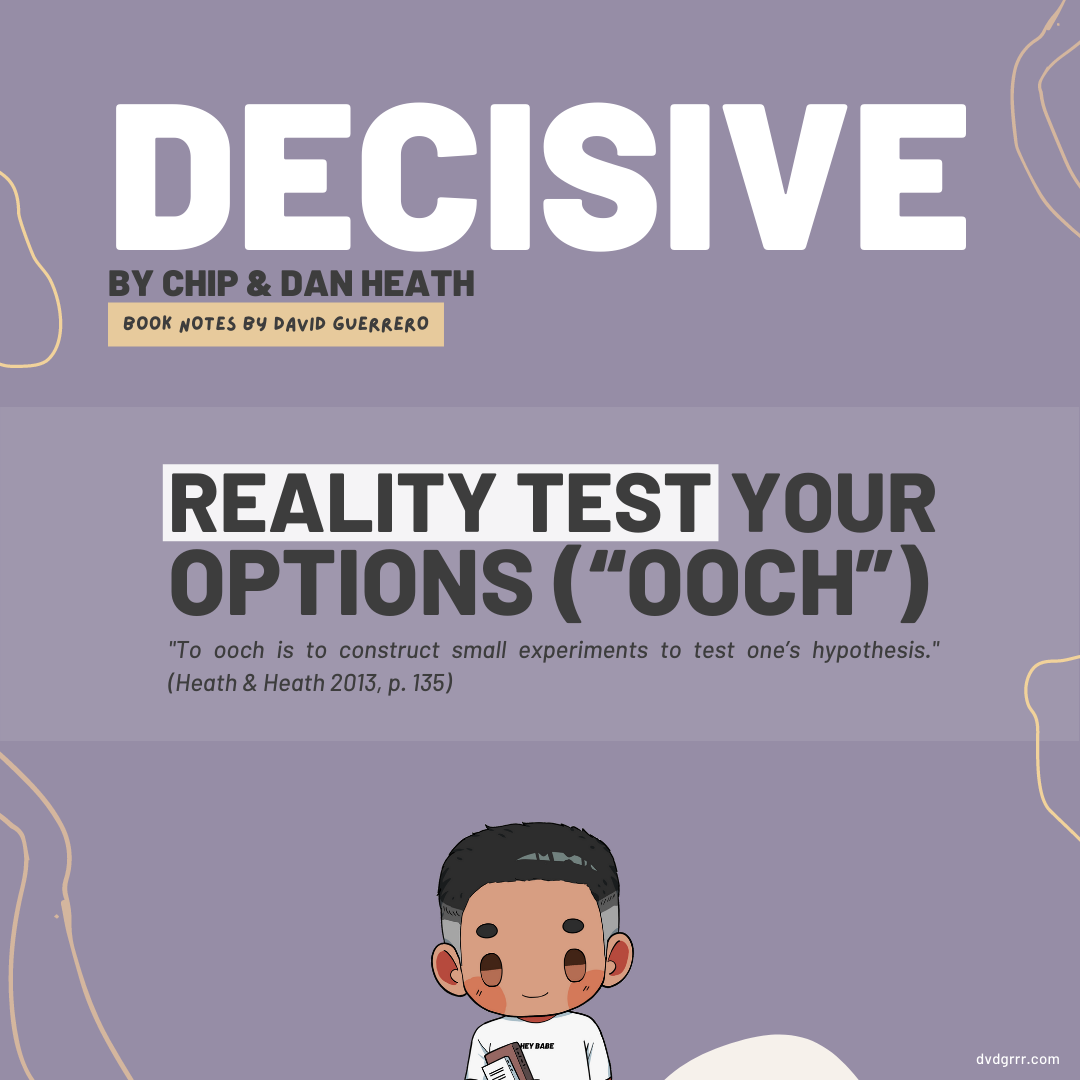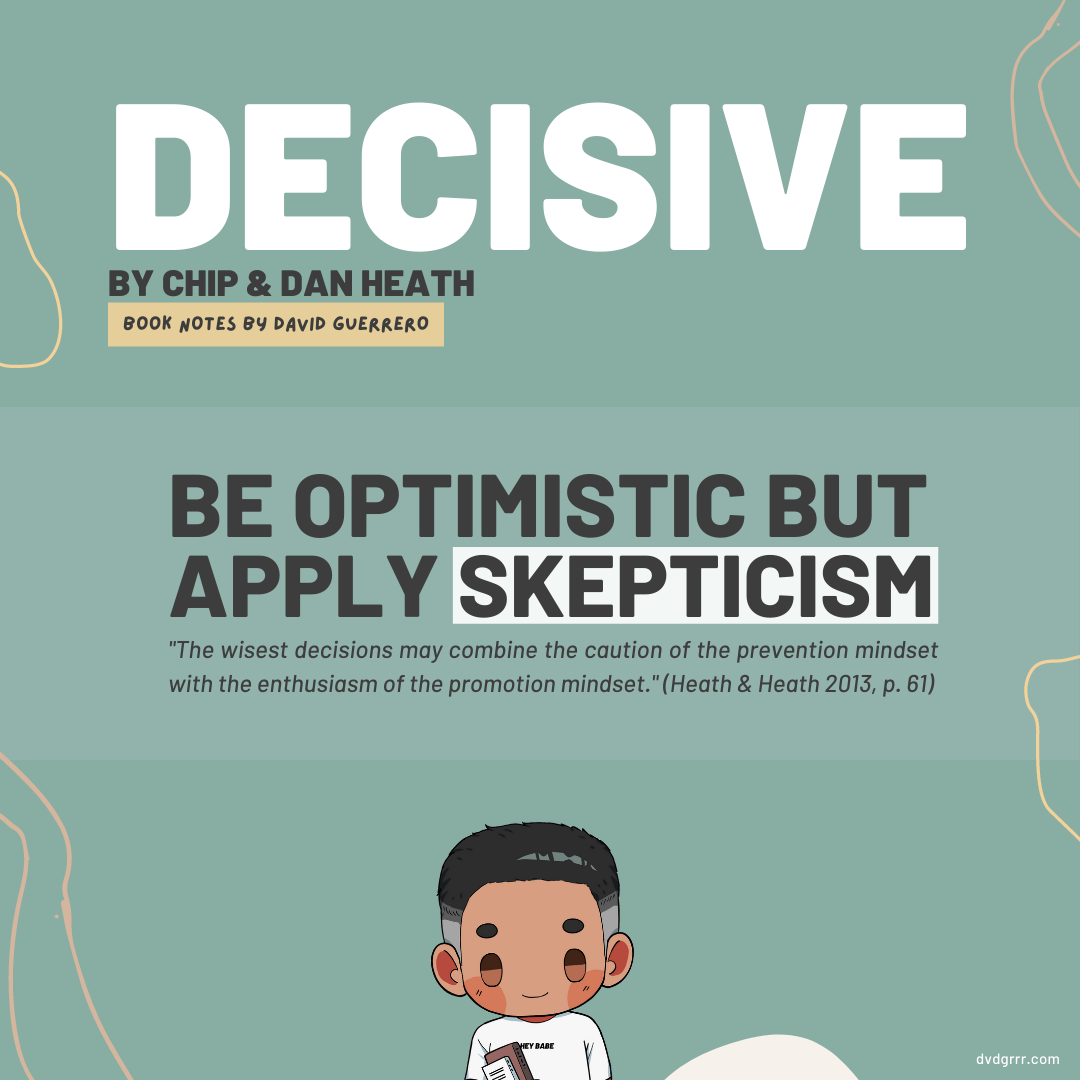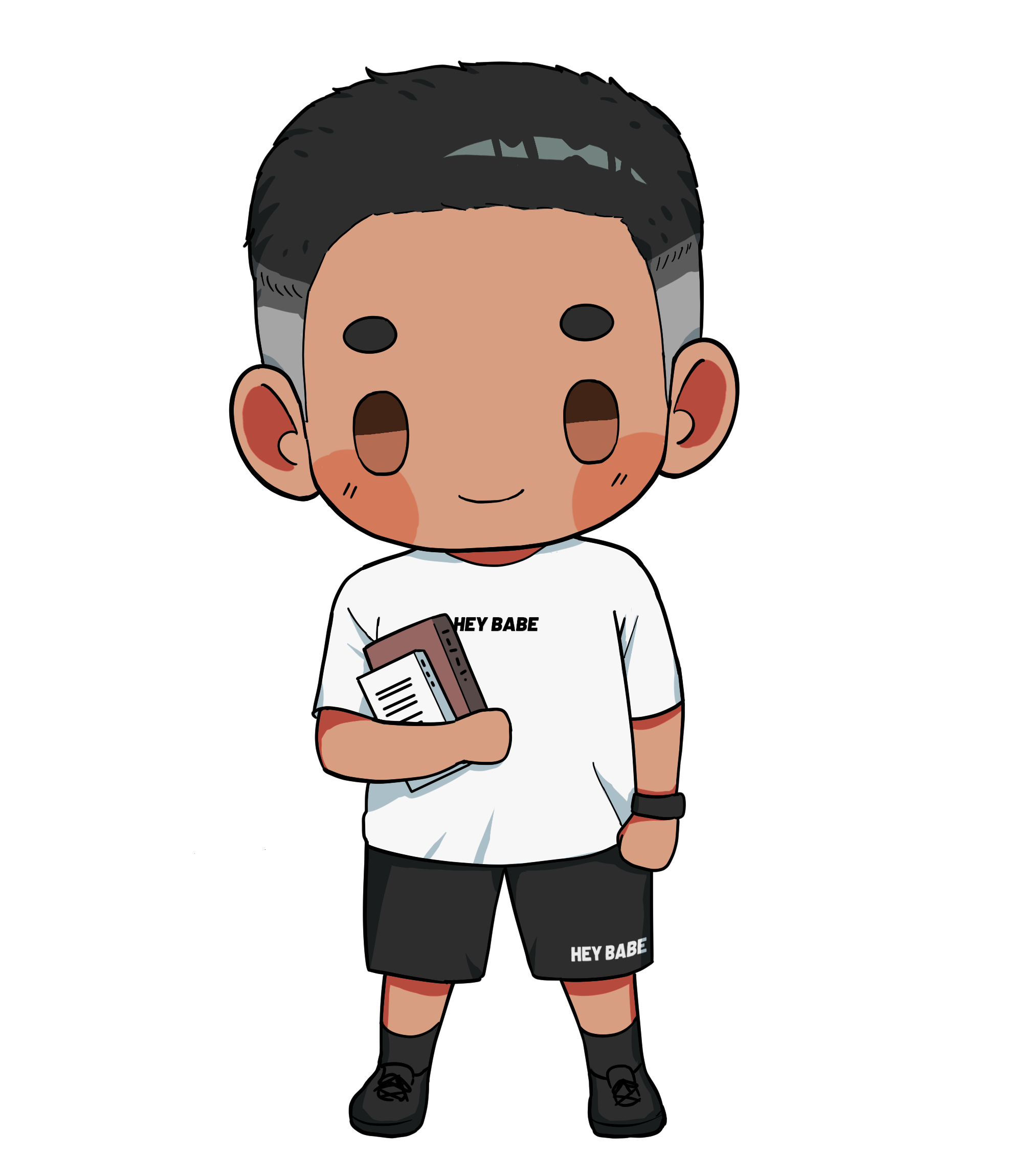📖 Decisive by Chip & Dan Heath
Topic: Decision Making | Rating: 5/5

Summary
This book provides a process and framework for decision-making.
Why I read this book
At times I can be very indecisive. Frivolous decisions like choosing what to eat at a restaurant and how to colour my spreadsheet; to higher stake decisions when it comes to my career and life. I want to be bolder and more efficient with decision-making.
Three keynotes
1. Widen your choices 🚪
We tend to view choices either-or. Should I buy this or not? But the opportunity cost is really what else you could have done with those resources. I have been applying this to my UberEATS dilemmas. Should I buy this, or could I eat a prepared meal plus invest the difference into my business? If I don’t have disposable income, the cost would also be having to work for more income.
"Narrow framing which is the tendency to define our choices too narrowly, to see them in binary terms." (Heath & Heath 2013, p. 10)
2. Reality test your options (“Ooch”) 👨🔬
It is impossible to predict the future. But there are ways to test before committing. I’ve done this recently for my business. I tested 2 photographers. One was efficient, photos were good but not amazing. One was slower, kinda scary but the photos were quality. In the end, I used the nicer photos, but I don’t think I would've been as happy with the outcome if I only chose one person. By having an alternative, I was able to compare.
"To ooch is to construct small experiments to test one’s hypothesis." (Heath & Heath 2013, p. 135)
"Ooching, in short, should be used as a way to speed up the collection of trustworthy information, not as a way to slow down a decision that deserves our full commitment." (Heath & Heath 2013, p. 148)
3. Be optimistic but apply scepticism 🤔
We tend to be overconfident about our decisions, even though the future is impossible to predict. By applying prospective hindsight, it allows us to mitigate potential adverse outcomes. E.g., “If I sold nothing in my next collection, what would be the reasons why?”
"The wisest decisions may combine the caution of the prevention mindset with the enthusiasm of the promotion mindset." (Heath & Heath 2013, p. 61)



Excerpt from a reverse mentor email
Concepts on Decision Making from the book Decisive by Chip & Dan Heath
- “A KPMG study of 700 mergers and acquisitions found that 83% of them did not boost shareholder value.”
- Reminded me of [redacted] growth phase, and its various acquisitions.
Ideas on better decision making:
- Remind ourselves of the objective. Was the acquisition of [redacted]? If so, is there a better way to achieve that objective? Only grow (more acquisitions, more employees etc.) if it means you are becoming better.
- Consider the opportunity cost. E.g. acquiring a business for $X means we are unable to invest in other opportunities. What else could we do with the same time, money or employee(s)?
- “To make good decisions, CEOs need to the courage to seek out disagreement.” – For high stake decisions, it’s great to be optimistic but someone needs to play devil’s advocate to consider all the risks. And remember “sometimes we think we’re gathering information when [we are] actually fishing for support.”
